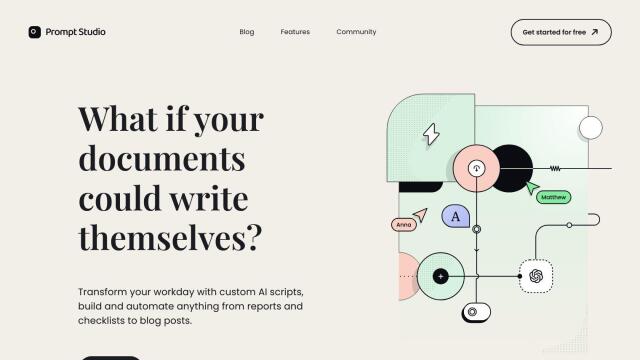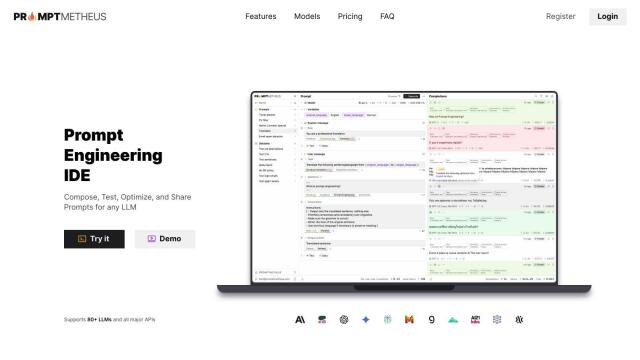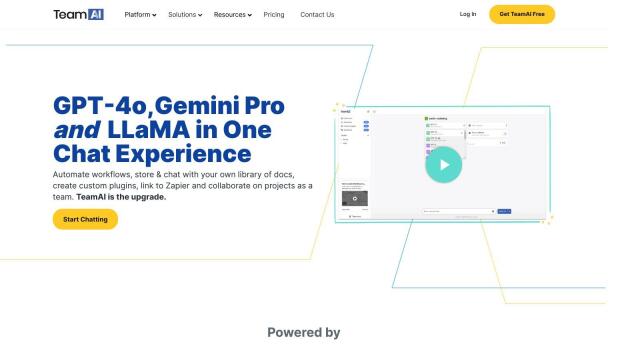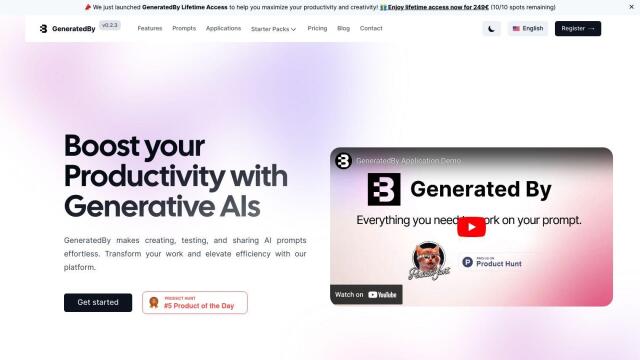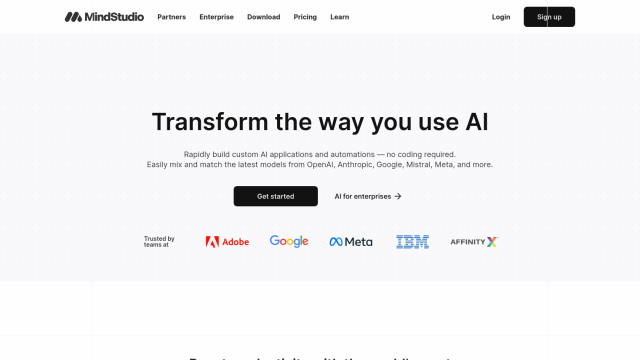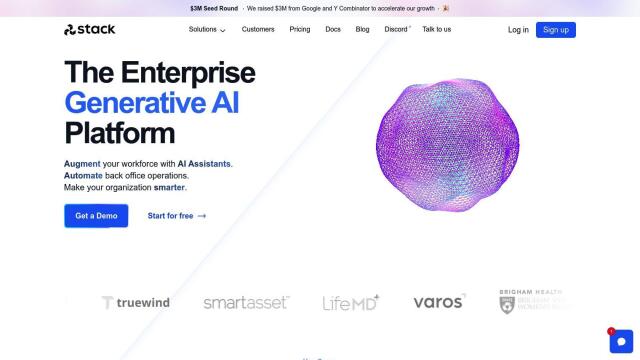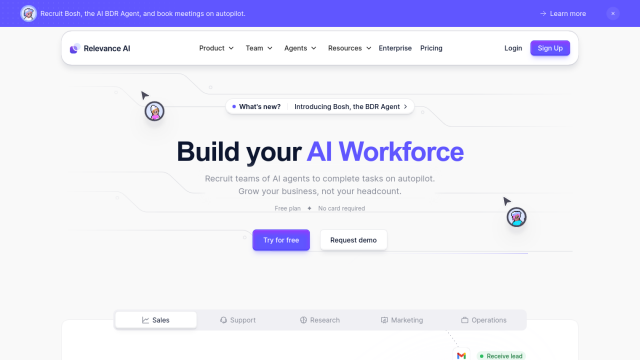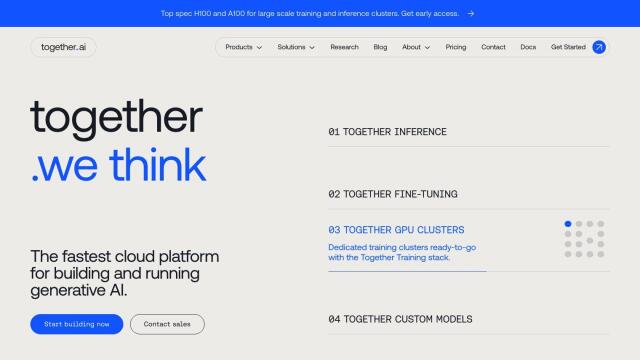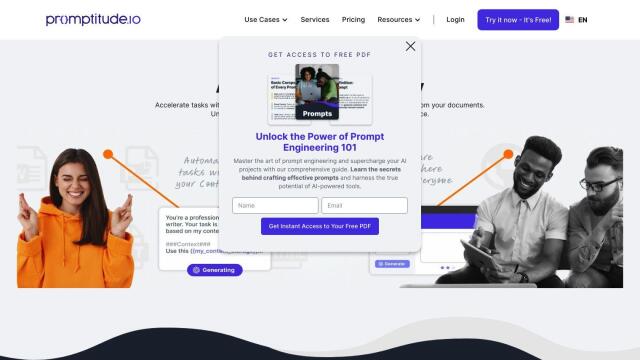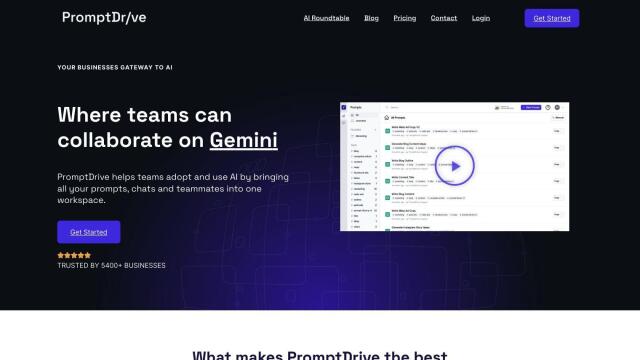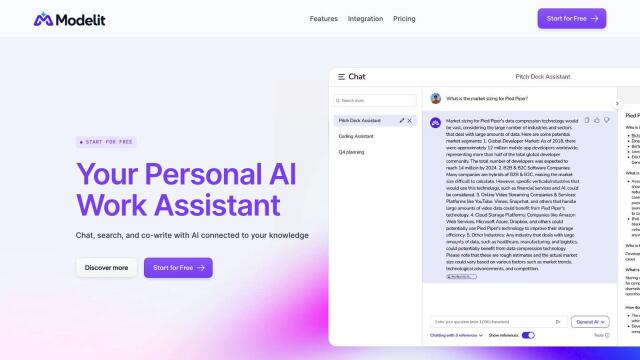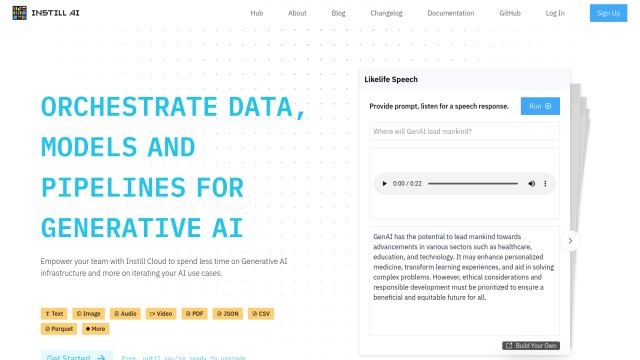
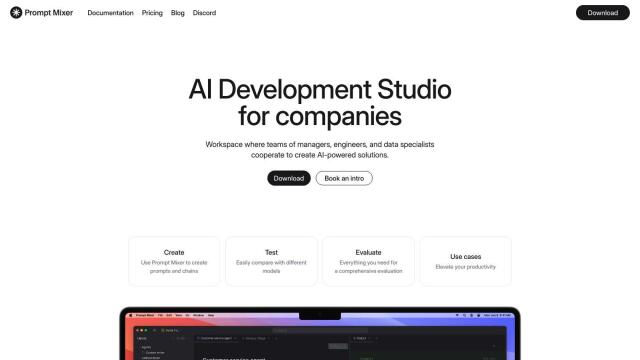
Prompt Mixer
If you're looking for a Prompt Studio alternative, Prompt Mixer is another good option. It's a collaborative workspace for teams to create, test and score AI-powered solutions. It lets you create prompts and prompt chains with Markdown, has version control and suggests AI prompts. The service integrates with many AI providers, lets you manage AI-generated logs, create sophisticated test scenarios and run custom JavaScript or Python code. That makes it good for content creation, data processing and personal use.

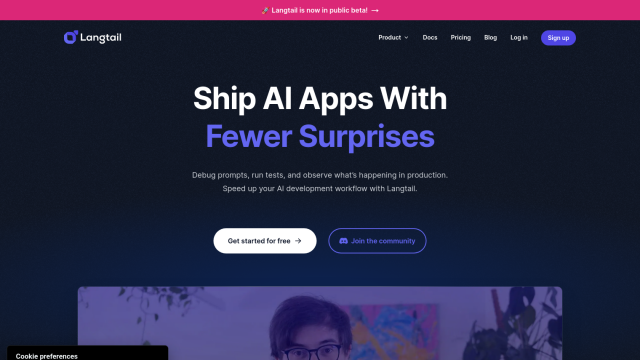
Langtail
Another good option is Langtail. Langtail is designed to help you create AI-powered apps with tools for debugging, testing and deploying LLM prompts. It's got features like fine-tuning prompts with variables, running tests to try to avoid surprises, and deploying prompts as API endpoints. Langtail also has a no-code playground for writing and running prompts, so you don't need to know much about programming. Its pricing tiers are designed for small businesses and enterprises, so teams of all sizes can use it.

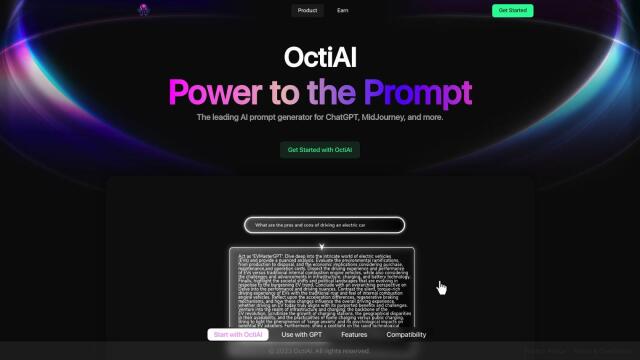
OctiAI
If you need to optimize your prompts, OctiAI is worth a look. It's designed to create the best prompts for image and text tasks with multiple AI models. OctiAI supports more than 15 top AI models, including ChatGPT and Midjourney. It's got features like cross-platform support, prompt fine-tuning and an AI community for collaboration. That means it's good for businesses and startups trying to cut costs and improve operations by optimizing AI prompts.


Dify
Last is Dify, an open-source foundation for building and running generative AI apps. Dify offers a Visual Orchestration Studio for designing AI apps, tools for secure data pipelines and customizable LLM agents. It can quickly deploy chatbots and AI assistants and has on-premise options for reliability and data security. Its tiered pricing, including a free tier, means it's good for individuals and large-scale businesses that want to build AI securely and efficiently into their operations.

